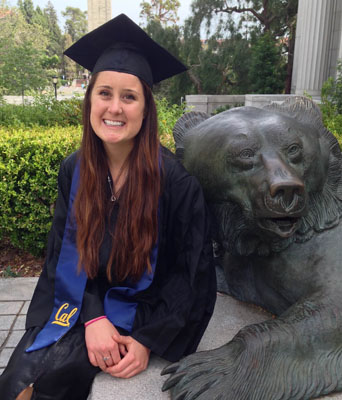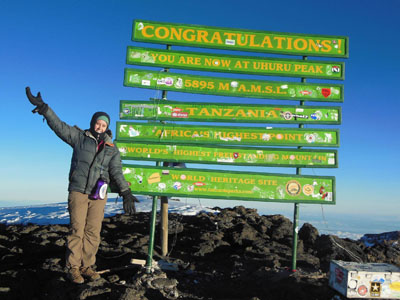 Just two weeks after graduating from UC Berkeley, I was walking down a street in San Francisco when I received an unexpected, almost inconceivable, phone call.
Just two weeks after graduating from UC Berkeley, I was walking down a street in San Francisco when I received an unexpected, almost inconceivable, phone call.
“Corey, you have adenocarcinoma. You need to see the doctor tomorrow.”
Adenocarcinoma?
I googled the foreign word – “The most common form of lung cancer.” At the time, I barely knew the difference between benign and malignant.
I’ve never smoked.
My only symptom was a flash in my right eye, which I later discovered was caused by a metastasis on the back of my eye, measuring less than two millimeters.
In a state of disbelief and confusion, I immediately moved back in with my parents, leaving my college experience, and Berkeley life, behind.
Accepting the diagnosis was the most difficult part.
 Here I was in marathoner’s shape, having run a trail half marathon just two weeks before. I had climbed Mount Kilimanjaro on my recent study-abroad trip. The survival rates were stark, and my family and I were desperate for an answer.
Here I was in marathoner’s shape, having run a trail half marathon just two weeks before. I had climbed Mount Kilimanjaro on my recent study-abroad trip. The survival rates were stark, and my family and I were desperate for an answer.
Luckily my medical team was already looking into recent advancements.
My first needle biopsy had been submitted for genomic testing, but only for the two most common genomic mutations. It was another huge blow when my oncologist told me I tested negative for both. Yet, he was confident we could still find something to save me from relying on chemotherapy, so we made the decision to have surgery to remove a nodule and submit it for a comprehensive genomic profiling.
 When the results came back, I felt like I had hit the genomic lottery.
When the results came back, I felt like I had hit the genomic lottery.
I am ROS1 positive, a genomic alteration that qualifies me for a targeted therapy in the form of a pill. I take my precision medicine, called Entrectinib, daily with manageable side effects and am beyond grateful that it is effective and allows me to continue doing the activities that I love.
I believe that I am alive because of recent research and am passionate about furthering ROS1 research in hopes of developing more effective targeted therapies.
